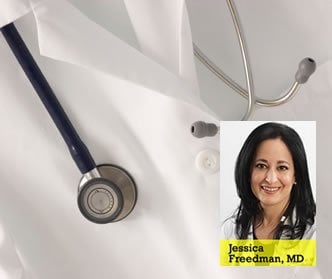This article is reprinted with permission from the American Student Dental Association. It originally appeared in the February 2014 issue of ASDA News.

Interviewing is a stressful experience. Knowing some typical interview formats and the expectations of your interviewer can help put your mind at ease while pursuing acceptance into dental school.
applications
5 Tips for Your Medical School Interview: Advice from a Recent Admit
Think of the medical school interview as a giant, modern dating ritual. Your AMCAS application and secondary essay were the first two online dates, and now you have agreed to meet each other in person. The admissions committee already has a rough skeleton of the greatest hits of your adult life, and they have decided that they really like you. However, before they will extend a proposal, they need to meet you in person, and they are willing to spend enormous amounts of their time and your money to arrange this meeting. What your interviewer writes about you for the admissions committee will either make your application come alive, remain flat on the paper, or tragically fail.
Medical School Interviews: 6 Common Mistakes That Admissions Officers Hate
Medical school interviews come in all different shapes and sizes. Some schools interview one-on-one, some have multiple interviewers, some have multiple-mini-interviews (MMI). Some schools use students, others use faculty, and some use alumni.
Separating Yourself for Professional School: 5 Key Steps Beyond The Grades
What’s your truth? What makes you different from every other person applying to professional school? Do your undergrad grades make a difference? Do your MCATs or DATs count?
Of course they do. Your GPA and aptitude test scores provide a baseline for every school you apply to. On the front end, its that simple. If you have the minimum GPA and test scores, your application lands in the possible pile; if you dont, it winds up in the impossible pile
for now.
That said, when you have the GPA and you have the MCAT or DAT scores everyone seeks, how do you separate yourself from the masses?
What Is Your Weakness?
Answering a common but challenging interview question.
The Crayon Box: Writing a Successful Personal Statement (PS) Part 1
Part one of a two part series giving advice about how to craft a compelling personal statement.
Adventures with Dentures: Volunteering in an Assisted Living Community
Sophomores with last names N-Z were supposed to call at 1:00. At 12:55, I was … Read more
All About Competency: Part 6
For future pre-health professional students, developing competencies and communicating them to admissions committees will be critical for success.
All About Competency: Part 5
Professionalism: the conduct, aims, or qualities that characterize a profession or a professional person.
If you ever give this answer to anyone who asks you what professionalism is, then remember to cite Merriam-Webster [http://www.merriam-webster.com/dictionary/professionalism].
Medical School Application Secondary Essays
You finally submitted your medical school primary application and think you can rest when, starting some time in late June, you start receiving secondary essay prompts—just about every day.
Overwhelmed, you start to wonder why you applied to so many medical schools. Most applicants (except those with exceptional grades, MCATs, and experiences) should apply broadly to a wide range of schools, but doing so translates into writing a whole bunch of secondary essays, which can be daunting.
What Will You Do If You Don’t Get Into Medical School?
Dr. Jeremiah Fleenor discusses strategies for answering the question, “What will you do if you don’t get into medical school?”, as well as how to strengthen your application for future application cycles.
All About Competency: Part 4
Part 4: How Competencies Are Evaluated
(Part of this article is based on another article I have published: “Competency-based holistic evaluation of prehealth applicants” (The Advisor [NAAHP publication] 29(2): 30-36, 2009).)
If you’ve ever tried applying for a job for the government, you will often be asked by USAJobs.gov to self-assess your competency development as follows:
A – Lacks education, training or experience in performing this task
B – Has education/training in performing task, not yet performed on job
C – Performed this task on the job while monitored by supervisor or manager
D – Independently performed this task with minimal supervision or oversight
E – Supervised performance/trained others/consulted as expert for this task
How to: Get Into Undergraduate Research
Regardless of the health profession you hope to enter, conducting lab research will enhance your application. Learn how admissions committees view research experience and how to get it.
All About Competency: Part 2
Part 2: Identifying and Evaluating Your Strengths and Weaknesses
What is your biggest weakness? What is your greatest strength?
Ever been stumped by these questions on an interview? Who hasn’t? I assure you the range of answers given to these questions should be a subcategory in the LOLcats website. I’ve heard way too many “I focus a lot on my studies” as answers to both questions. Nevertheless, most companies and professional school admissions committees cite these questions (or similar variations) among their many sample interview questions.
Some of my advice on this topic can be found on the Kaplan Medical School Insider webinar [free pre-registration required], using the analogy that an applicant’s biggest weakness was (noting the pun) being overweight. While that particular example is quite valid, this article focuses on helping you identify a weakness that answers this question honestly.
All About Competency: Part 1
Think that great grades = great doctor? In the 21st century, success will require you build competencies that you can apply to evolving technology. Part one of a six part series.
Premedical Preparation
By Dr. Lisabetta Divita
While the profession has changed over the past few decades, being a physician is a challenging and esteemed calling. As such, medical school admissions are quite competitive. Medical school applicants are required to complete the AAMC or AACOMAS applications, take the MCAT and fly out for interviews. Even with all of these requirements, sadly, many excellent candidates are rejected each year. This can be a blow to your ego but if you are determined to reach your dreams, your premedical preparation cannot begin too early—some important decisions are made in high school.
Personal Statement Myths
You have read every thread on SDN about personal statements, but you still aren’t sure what you should or should not do. A ton of conflicting information is “out there” and whether you are applying to medical school, pharmacy school or anything in between, you need to be aware of some common myths about what you “must” do.
I hear about most of these myths from medical school applicants: “But my advisor said I should NEVER write about that!” “But, my fourth cousin once removed who is in medical school at a top 10 school said I shouldn’t do that.” Like everything else in the medical admissions process, personal statements have few absolutes or formulas so always take such definitive advice with a grain of salt. So, what are some of the myths I hear most often?
7 Top Tips to Get Stellar Letters of Recommendation
No matter what type of health professional school you are targeting, you will need to obtain letters of reference. Dr. Lisabetta Divita provides tips on getting the best letters possible.
How to Work with Pre-Health Advisors and Committees
Have you ever noticed that many schools note that they want a letter of recommendation from a “pre-health advisor or committee if available to the student”? In this article, I’d like to give you the basics of what a pre-health advisor is from my perspective and why they can be your ally in the application process.












